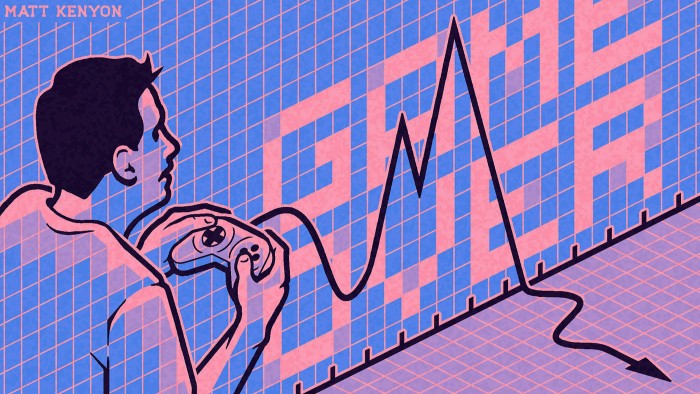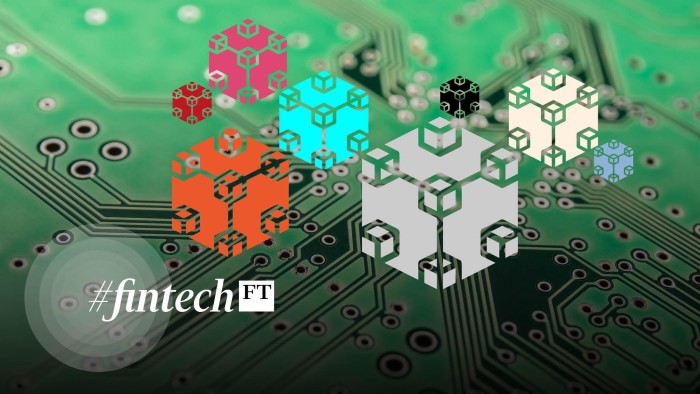Trading apps reduce markets to a game


Roula Khalaf, Editor of the FT, selects her favourite stories in this weekly newsletter.
What social networks have done to society, trading apps have begun doing to markets.
Consider the similarities between last January’s riot in the US Capitol and the capital riots on trading platforms such as Robinhood, which goes public this week. Just as Washington was stormed by Trump supporters who organised themselves into a flash mob online, so the new crop of high-speed trading platforms have enabled retail “bros” to band together in what can only be described as a multiplayer game to pump and dump various “meme” stocks and cryptocurrencies.
The bloodshed of the riots made them a far more serious event. But in both cases, those involved were driven by a sense that they were somehow being manipulated or undermined by a system that was out of their control. By leveraging digital networks such as Reddit to organise, they could strike back in some way — be it by terrorising members of Congress or bidding up GameStop to hurt some hedge funders.
We understand the threat to democracy posed by platform technology. But less has been said about the dangers posed to our financial system as “likes” become “buys”.
Some people, including Robinhood’s founders, contend that the online brokerage “democratises” finance by allowing novice traders to make split-second bets on everything from stocks to complicated derivatives, just like the professionals do. But this conflates the idea of voice with that of profitmaking.
I’d argue that high-speed trading platforms designed to rope in the most vulnerable novice traders (the average age of the 18m users is 31, and the median account balance is $240) are simply a new and more nefarious kind of surveillance capitalism.
First, consider the asymmetry of power. We have no idea of the true value of the personal data that is sold by platform giants like Facebook or YouTube to advertisers as the hidden charge for the supposedly “free” services we enjoy online. In the same way, the users of Robinhood have no idea that the reason that they and their fellow retail bros can trade “free” online is that their order flows are being shared with bigger, richer fish.
They are, meanwhile, being induced to trade as much as possible, as fast as possible, via digital nudges designed by behavioural scientists whose job it is to create the most addictive interfaces. Just as digital “loot boxes” keep children playing online video games and in some cases spending real money on things within the game, so the nudges on trading platforms — push notifications, happy reward icons, hot stock lists and such like — are about getting the endorphins going and the money flowing. Nobody gets a special reward for buying and holding an asset. Is it any surprise that Robinhood’s growth is led by the trading of complex and speculative assets like options and NFTs?
More trading is, of course, correlated with more losses for individuals. But even for those who aren’t engaged in this kind of gamified trading, there is a downside — bizarre market swings that are driven in part by this new crop of small-time speculators (consider not only meme “investing”, but the role of retail platform traders in major commodity price swings last year).
One can make a case that it’s unfair to stop the little guy doing what the professionals do. But there are also questions to be asked about the social value of high-speed trading across the board. “It’s all just so wasteful,” says Hilary J Allen, a professor at the Washington College of Law, who specialises in fintech regulation. Not only gamified trading, but “also the idea that we’re boring holes through mountains to run fibre to shave a millisecond off somebody’s trade time. I mean, come on!”
All this underscores how far our market system has come from what it was originally designed to do, which is to intermediate between savers and borrowers by funnelling money to where it is most productive. Investment apps such as Robinhood are the opposite of this. They aren’t about real investing, or even gaming the financial system. They have turned the system itself into a game.
Technology has made markets faster, but arguably not better. It certainly hasn’t made them cheaper. As academics such as Thomas Philippon have shown, none of the many technological “innovations” in the financial markets since 1880 has actually lowered the cost of financial intermediation. Someone is making as much money as ever. Fintech just makes it tougher to see who.
Weekly newsletter

For the latest news and views on fintech from the FT’s network of correspondents around the world, sign up to our weekly newsletter #fintechFT
How to fix things? It’s possible that Robinhood will become a victim of its own success. The company is offering at least 20 per cent of the IPO shares to users, but knows what the flash mob will do with them in the long term.
The Securities and Exchange Commission, which has already fined the company for various misdeeds, should force platforms like Robinhood to spell out what “free” trading really means. How and with whom is user data being shared? The same should, of course, go for any broker. Regulators should also apply existing antifraud and anti-manipulation rules to subreddit forums frequently used by retail traders online (chat rooms are already monitored).
I also think it’s time to restart the conversation about how to structure a US financial transaction tax, already in use in some European countries. Any revenue gained could be used to bolster the digital capacity of regulators. They’ll need it.
Comments